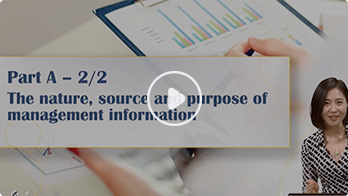 百度网盘下载,自提,戳:ACCA资料【新手指南】+内部讲义+解析音频
百度网盘下载,自提,戳:ACCA资料【新手指南】+内部讲义+解析音频ACCA证书
Summary of changes to Audit and Assurance(AA)
ACCA periodically reviews its qualification syllabuses so that they fully meet the needs of stakeholders such as employers,students,regulatory and advisory bodies and learning providers.The main areas which have been added to the syllabus are summarised in the table below.
Table 1–Amendments to AA
Section and subject area Syllabus content
B1(e)A learning outcome has been added in respect of quality control.Candidates now need an understanding of the objectives and importance of quality control,as well as being able to explain quality control procedures.Explain the overall objectives and importance of quality control procedures in concluding an audit.
C2(a)The references to internal control questionnaires and internal control questionnaires have been combined.Explain how auditors record internal control systems including the use of narrative notes,flowcharts and questionnaires.
C3(b)The learning outcome has been reworded to make specific reference to key controls.Describe control objectives,control procedures,activities,key controls and tests of control in relation to:
i)The sales system;
ii)The purchases system
iii)The payroll system
iv)The inventory system
v)The cash system
vi)Non-current assets
C4(c)The learning outcome which was previously under A3(g)has been moved to C4(c)as it is considered to be most relevant to the issue of internal control.Discuss the need for auditors tocommunicate with those chargedwith governance.
C5(b)The specific reference to appropriate international codes of corporate governance has been removed.Discuss the elements of best practice in the structure and operations of internal audit.
D5(a)&D5(b)
These learning outcomes have been reworded to include reference to data analytics.
D Audit evidence
5.Computer-assisted audit techniques
a)Explain the use of computerassisted
audit techniques and data
analytics in the context of an audit.
b)Discuss and provide relevant
examples of the use of test data and
audit software and other data
analytics tools.




 ACCA考试指南
ACCA考试指南
 发布时间:2019-05-21
发布时间:2019-05-21 

 复制本文链接
复制本文链接 模拟题库
模拟题库

 174
174




















